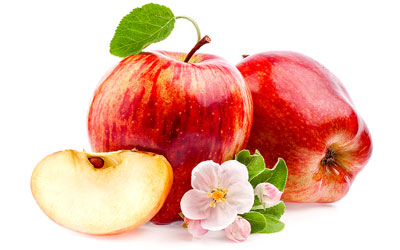Among the various culprits of oxidative stress that lead to diabetic complications are high cholesterol, blood glucose, and insulin levels. Because dealing with these health conditions can directly reduce life-threatening complications, management strategies are highly sought-after.
In efforts to find effective, natural solutions, researchers turned their attention to apple vinegar, also called apple cider vinegar. Being a natural product of apple fermentation, it is rich in polyphenols and acetic acid. It is also an interesting candidate as a functional food for diabetes as several studies have linked it to a reduced oxidative stress.1,2
The aim of this study was to evaluate the benefits of apple vinegar in adults with diabetes and dyslipidemia.
The Study
This parallel randomized clinical trial took place at the Shadid Sadoughi University of Medical Sciences in Yazd, Iran.
70 adults with type 2 diabetes and hyperlipidemia, recruited from three local health clinics, were randomly assigned into two groups: the intervention group receiving 20 mL of apple cider vinegar daily mixed with water and the control group just received prescribed lipid-lowering drugs. The intervention lasted for eight weeks.
Various health indices were taken before and after the study, including fasting blood sugar levels, insulin sensitivity checks, blood pressure, and others. Patterns of physical activity and dietary intakes were also recorded.
The Results
Out of 70 enrolled participants, 62 successfully completed the trial. The apple vinegar group showed a significant decrease in fasting blood sugar levels (a mean drop of 10.16 mg/dl from 138.62 mg/dl before the study to 128.46 mg/dl at its end).
Researchers also observed small improvements in various markers of glycemic and oxidative stress (e.g. malondialdehyde, homocysteine, and systolic blood pressure) in the intervention group.
Additionally, measurements of antioxidant capacity (namely, 2,20-Diphenyl-1-picrylhydrazyl) also showed a more significant increase in apple cider vinegar participants relative to those in the control group.
What Does this Mean?
The results of this study suggest that regular apple vinegar consumption may be beneficial for people with diabetes and dyslipidemia, particularly in relation to glycemic indices and oxidative stress.
This is great news for diabetes sufferers as taking apple vinegar is a simple, low-cost, and side effect-free strategy that can be implemented virtually right away to control blood sugar levels and other important health markers.
Other herbs that offer health benefits to diabetics include lucuma, goldenberries, broccoli, and oats.
Sources
- Clinical Nutrition ESPEN, The effect of apple vinegar consumption on glycemic indices, blood pressure, oxidative stress, and homocysteine in patients with type 2 diabetes and dyslipidemia: A randomized controlled clinical trial, 2019
Footnotes:
- Current Diabetes Reviews. (2011). The Role of Oxidative Stress in the Pathogenesis of type 2 Diabetes Mellitus Micro- and Macrovascular Complications: Avenues for a Mechanistic-Based Therapeutic Approach. Retrieved October 9, 2020 from https://www.eurekaselect.com/75223/article
- Circulation Research. (2010). Oxidative Stress and Diabetic Complications. Retrieved October 9, 2020 from https://www.ahajournals.org/doi/10.1161/CIRCRESAHA.110.223545





